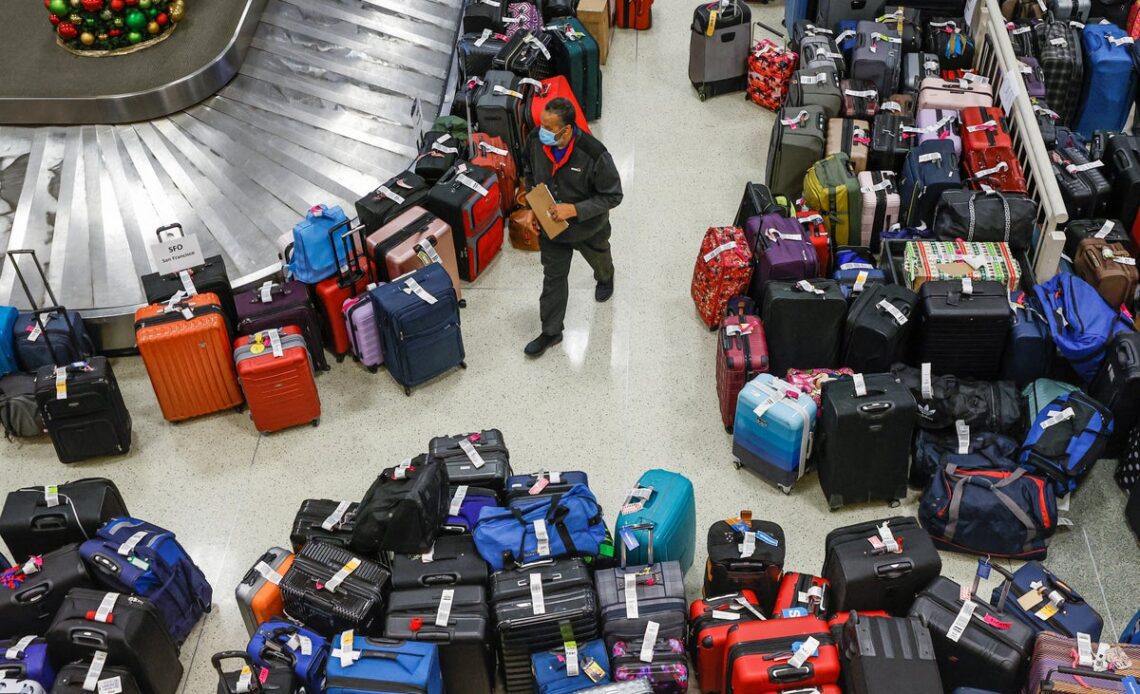North America was hammered by one of the worst snow storms in living memory this Christmas, with at least 72 people killed in the US and Canada by the astonishingly low sub-zero temperatures, which hit -40C in some areas.
Storm Elliott brought bitter winds, heavy snow and ice and caused transport chaos at one of the busiest times of the year for travel as thousands of flights were cancelled, cars were stranded and buildings left without power thanks to the most damaging spell of winter weather since the notorious Great Blizzard of 1977.
For the airline industry, the disaster proved to be the perfect end to a nightmare year.
The global air travel industry had hoped 2022 might mark a return to normality, with holidaymakers taking to the sky once again after two years of pandemic-related slowdown but has instead found itself beset with problems, to the point whereby lost and delayed luggage now appears to have become the norm.
Baggage troubles reached a fever pitch amid flight cancellations from the winter storms in North America, with images of airports packed with unclaimed luggage flooding social media. Those images do a decent job of summing up travel this year.
2022 – the year of lost luggage
This July, at the height of summer vacation season, more than six bags out of every 1,000 checked in by passengers were at least temporarily lost, according to data from the US Department of Transportation (DoT).
The number of delayed or lost bags rose to 0.64 per cent that month, up from 0.59 per cent in the same month in 2021.
During one especially memorable incident at London’s Heathrow Airport in June, thousands of suitcases and bags were pictured piled sky-high outside a terminal, in what was infamously dubbed “baggage mountain”.
That particular issue, at the world’s seventh-busiest airport, all started with a technical glitch in the baggage system at Terminal 2. This then resulted in a huge backlog of luggage stuck in transit, leaving baggage-handlers overwhelmed while trying to sort them out.
The Independent exclusively reported how Heathrow responded by asking airlines to cancel 10 per cent of their flights one day that month, so the transport hub could tackle the burgeoning problem. A staggering 15,000 passengers across 90 flights were estimated to be affected by the grounding of planes that day.
It was a meltdown that sparked…
Click Here to Read the Full Original Article at The Independent Travel…
